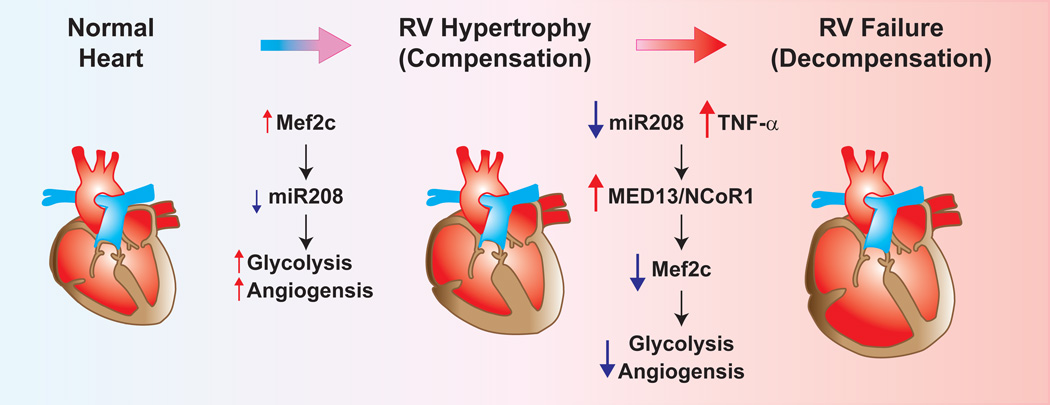Figure 1.
Proposed model of miR208/Mef2c and TNF-α in the transition from compensated RV hypertrophy to decompensated RV failure. During RV hypertrophy (compensation) miR208 expression is decreased, and Mef2c expression is slightly increased. Mef2c regulates genes involved in increased glycolysis and angiogenesis. During the progression of RV hypertrophy to RV failure (de-compensation) miR208 continues to decrease in combination with increased TNF-α, leading to increased expression of MED13/NCoR1 complex which inhibits Mef2c through a negative feedback loop leading to decreased glycolysis and angiogenesis.

